The BFG takeover strategy is hard to fathom, says Elaine Watson
Big Food Group might be happy to recommend a 110p a share takeover from Icelandic group, Baugur. But would it be so amenable if the offer were lowered to 90p?
Last week the group, which owns Iceland, confirmed that it had opened its books to Baugur before proceeding with an offer. The move, which coincided with a statement by the group that sales in the 10 weeks to September 10 had slipped by 3.2%, prompted speculation that Baugur, which owns a 22% stake in Big Food Group, might reduce its offer.
But even then, the deal would not be an obvious play for Baugur, say City analysts.
In spite of its prime high street locations, BFG comes with £245m of debt, a whopping £192m pension fund deficit, a cash-generative but low margin cash and carry chain, a loss-making foodservice company (Woodward) and a freezer store estate with sales moving backward instead of forward.
While a raft of retailers (and former Iceland boss Malcolm Walker) may well be interested in cherrypicking Iceland’s best stores, they are almost certainly not interested in the whole business, making a rival bid highly unlikely.
This probably explains the downbeat tone of BFG’s latest trading statement, which points out that Baugur and partners “reserve the right to make an offer at a lower price with the agreement of the board”- not the words of a business holding out a great deal of hope of a rival bid.
With just one name in the frame, says Numis analyst Iain McDonald, “we would be surprised if Baugur didn’t revise its price to nearer 90p and, given the environment, we struggle to see how the management of BFG could not accept”.
However, none of this explains why Baugur is considering bidding for BFG in the first place, observes Fitch Ratings retail analyst Jonathan Pitkänen. While there may not be an obvious exit strategy for Baugur at the moment, buying the whole business is hardly the only alternative, he points out.
Pitkänen says Baugur has been very brave to make an approach in the current climate.
“Iceland is struggling and while Booker is cash-generative, its margins are terrible. The delivered wholesale side of the business is growing through Premier but its core customer base [unaffiliated independents] is in terminal decline.”
Baugur’s options look limited, adds Teather & Greenwood analyst Dave Stoddart. Breaking up BFG and selling off bits after the company has spent three years welding its disparate parts together is not the most sensible strategy, he says.
“Iceland has some attractive stores, but selling off the crown jewels would make the rest of the estate less attractive and create overcapacity in the supply chain.” Similarly, selling off the Booker cash and carry estate would be easier said than done, he adds. For a start, there are no obvious buyers. While Booker has a sizeable delivered business and a growing symbol group operation, it is mainly a cash and carry business and will be way down a venture capitalist’s shopping list.
Meanwhile, potential trade buyers would struggle to adapt the sites to their business models. Planning restrictions would prevent Costco from running Booker sites as warehouse clubs, while Metro Group, which owns the 33-strong Makro cash and carry estate, is focused on organic growth in emerging markets. Says a Metro Group spokesman: “We’re focused on Asia and eastern Europe at the moment - countries such as Vietnam, India and the Ukraine.”
Musgrave, the only other credible bidder for the entire estate, declined to comment. Some well-placed sources claim a break-up of Booker is a possibility, with tranches of depots going to a variety of companies in the wholesale sector.
However, given that Booker is the only part of BFG generating any cash, Baugur may not want to sell it off anyway, says Seymour Pierce analyst Richard Ratner. “To be honest, I struggle to see Baugur’s strategy. But I don’t think you can say they made a mistake building up the share in BFG in the first place without an obvious exit strategy.
“Let’s not forget they are still quids in on paper [Baugur bought the shares at 40p and they are now trading at over £1].
“We’ll just have to wait and see what they are planning.”
Big Food Group might be happy to recommend a 110p a share takeover from Icelandic group, Baugur. But would it be so amenable if the offer were lowered to 90p?
Last week the group, which owns Iceland, confirmed that it had opened its books to Baugur before proceeding with an offer. The move, which coincided with a statement by the group that sales in the 10 weeks to September 10 had slipped by 3.2%, prompted speculation that Baugur, which owns a 22% stake in Big Food Group, might reduce its offer.
But even then, the deal would not be an obvious play for Baugur, say City analysts.
In spite of its prime high street locations, BFG comes with £245m of debt, a whopping £192m pension fund deficit, a cash-generative but low margin cash and carry chain, a loss-making foodservice company (Woodward) and a freezer store estate with sales moving backward instead of forward.
While a raft of retailers (and former Iceland boss Malcolm Walker) may well be interested in cherrypicking Iceland’s best stores, they are almost certainly not interested in the whole business, making a rival bid highly unlikely.
This probably explains the downbeat tone of BFG’s latest trading statement, which points out that Baugur and partners “reserve the right to make an offer at a lower price with the agreement of the board”- not the words of a business holding out a great deal of hope of a rival bid.
With just one name in the frame, says Numis analyst Iain McDonald, “we would be surprised if Baugur didn’t revise its price to nearer 90p and, given the environment, we struggle to see how the management of BFG could not accept”.
However, none of this explains why Baugur is considering bidding for BFG in the first place, observes Fitch Ratings retail analyst Jonathan Pitkänen. While there may not be an obvious exit strategy for Baugur at the moment, buying the whole business is hardly the only alternative, he points out.
Pitkänen says Baugur has been very brave to make an approach in the current climate.
“Iceland is struggling and while Booker is cash-generative, its margins are terrible. The delivered wholesale side of the business is growing through Premier but its core customer base [unaffiliated independents] is in terminal decline.”
Baugur’s options look limited, adds Teather & Greenwood analyst Dave Stoddart. Breaking up BFG and selling off bits after the company has spent three years welding its disparate parts together is not the most sensible strategy, he says.
“Iceland has some attractive stores, but selling off the crown jewels would make the rest of the estate less attractive and create overcapacity in the supply chain.” Similarly, selling off the Booker cash and carry estate would be easier said than done, he adds. For a start, there are no obvious buyers. While Booker has a sizeable delivered business and a growing symbol group operation, it is mainly a cash and carry business and will be way down a venture capitalist’s shopping list.
Meanwhile, potential trade buyers would struggle to adapt the sites to their business models. Planning restrictions would prevent Costco from running Booker sites as warehouse clubs, while Metro Group, which owns the 33-strong Makro cash and carry estate, is focused on organic growth in emerging markets. Says a Metro Group spokesman: “We’re focused on Asia and eastern Europe at the moment - countries such as Vietnam, India and the Ukraine.”
Musgrave, the only other credible bidder for the entire estate, declined to comment. Some well-placed sources claim a break-up of Booker is a possibility, with tranches of depots going to a variety of companies in the wholesale sector.
However, given that Booker is the only part of BFG generating any cash, Baugur may not want to sell it off anyway, says Seymour Pierce analyst Richard Ratner. “To be honest, I struggle to see Baugur’s strategy. But I don’t think you can say they made a mistake building up the share in BFG in the first place without an obvious exit strategy.
“Let’s not forget they are still quids in on paper [Baugur bought the shares at 40p and they are now trading at over £1].
“We’ll just have to wait and see what they are planning.”


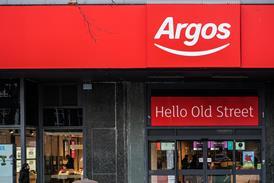
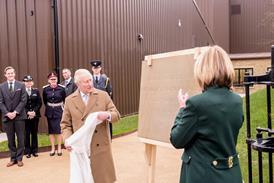



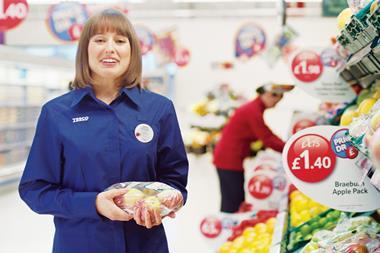


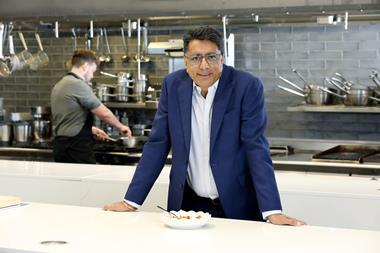

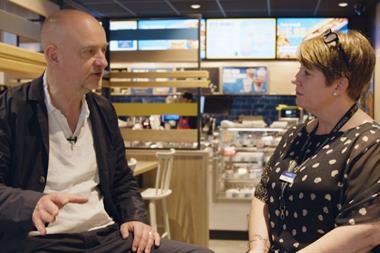



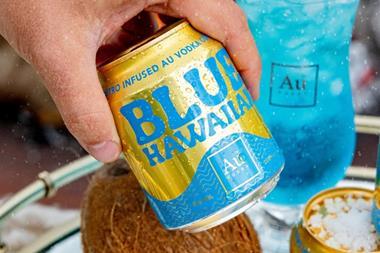

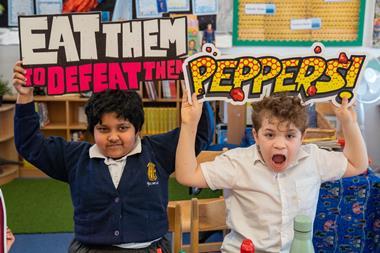
No comments yet